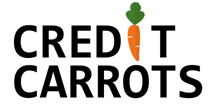1. Make your payments on time. Period.
If you haven’t been making your payments on time, then start doing so right now – even if it’s just the minimum payment on your credit card.
When we say payments we mean all payments: phone bill, water bill, electricity bill, cable and internet bill etc. Even just paying a bill one day past the deadline can cause a drop in your credit score.
If you are late on a payment, the amount your credit score decreases by will depend on how late the payment is. That means if you miss a payment, you should pay it as soon as possible – not wait for the next billing cycle.
Don’t be late on any payment!
2. Keep your credit utilization under 25%.
Your credit utilization is the ratio of your total credit balance to your total credit limit. For example, if you have total available credit of $10,000 and have a balance of $5,000 then you have a utilization ratio of 50%.
Your total credit limit includes more than just your credit cards. Any lines of credit also count towards your total limit.
On interesting thing to note is that charge cards (such as the AMEX Platinum) do not count towards your total credit limit since they are not credit cards, and have no predetermined limit.
If your credit utilization ratio is over 25%, then we strongly recommend you drop it down to below 25%. This could mean paying for more items by cash, and also spending less.



